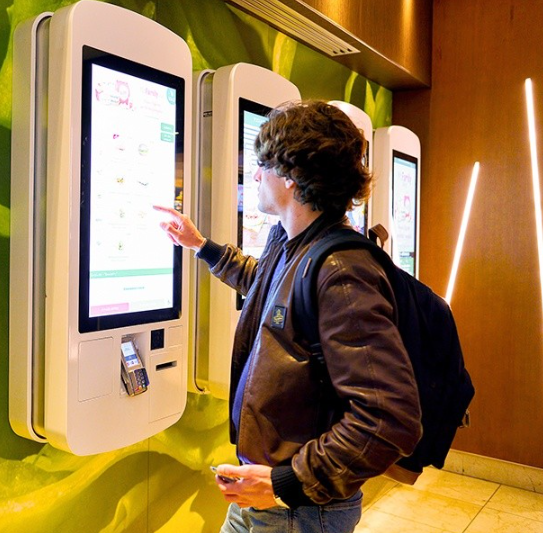The hospitality industry has seen a significant transformation with the rise of self-service technology. Over the past few years, these advancements have reshaped how customers interact with services, offering greater autonomy and convenience. From self-check-in kiosks at airports to ordering systems in restaurants, self-service technology is becoming a central component in enhancing efficiency and customer satisfaction. In particular, hotel self-check-in kiosks have proven to be invaluable, streamlining operations and improving guest experiences by reducing wait times and offering greater flexibility.
As customer expectations evolve, so do the tools businesses use to cater to them. The push for operational efficiency and customer satisfaction is driving the widespread adoption of self-service solutions. These tools are more than just trends; they reflect a deeper shift in the way hospitality services are delivered, meeting the needs of tech-savvy customers who want fast, seamless service.
The Advantages of Self-Service Platforms
Self-service platforms bring numerous benefits that go beyond just improving operations. These systems help businesses boost efficiency by accommodating more customers without needing to hire additional staff, thus cutting overhead costs. They also reduce human errors, ensuring consistent service quality. For instance, automated kiosks let customers customize their experience, while simultaneously alleviating the workload on employees, allowing them to focus on more complex or personalized tasks.
Businesses using self-service technology have reported higher customer satisfaction levels due to shorter wait times and more efficient service delivery. By implementing these systems, companies not only optimize their operations but also gain a competitive edge in a rapidly changing market.
Hospitality Kiosks: A Key Element of Self-Service
Hospitality kiosks play a crucial role in transforming service delivery in hotels and restaurants. These systems reduce wait times and provide customers with the ability to complete tasks, like checking in or placing orders, without direct interaction with staff. This offers a convenient, efficient, and empowering option, particularly for those who prefer a self-guided experience.
Kiosks allow businesses to redistribute their workforce, directing staff to areas that require more personal engagement and decision-making. This reallocation of resources enables businesses to better manage high-volume periods and improves overall operational efficiency. For customers, kiosks provide an intuitive platform that aligns with their desire for quick, autonomous service.
Improving Customer Experience with Self-Service Technology
Incorporating self-service technology into hospitality settings opens up opportunities to personalize guest experiences and gather valuable insights. These systems allow businesses to better understand individual preferences, leading to customized services that enhance guest satisfaction and loyalty. Furthermore, the data collected through these systems enables continuous improvement, helping businesses stay aligned with customer expectations and industry trends.
By embracing digital transformation, hospitality businesses can not only meet current demands but also anticipate future needs, offering more targeted, effective, and rewarding services for their customers.
Challenges of Implementing Self-Service Platforms
While the advantages of self-service platforms are clear, there are challenges to consider. For one, the initial cost and time required to set up these systems can be significant. Additionally, ongoing maintenance and updates are necessary to ensure these platforms remain functional and up to date. Without proper support, the technology could quickly become outdated and less effective.
Another concern is privacy and data security. As more businesses rely on self-service technology, protecting customer data becomes even more critical. Companies must establish strong security protocols and comply with data protection regulations to safeguard customer trust and avoid potential security breaches. Addressing these challenges with careful planning and strategic investment is essential for businesses to reap the full benefits of self-service technology.
A Real-World Example: Successful Kiosk Integration
One notable example of the success of self-service kiosks is a well-known hotel chain that implemented check-in kiosks across its locations. The results were impressive: check-in times were reduced significantly, and guest satisfaction scores saw a marked improvement. Guests who used the kiosks reported a more personalized and efficient experience, allowing them to adjust room preferences and services without waiting in long lines at the front desk.
This case study highlights the potential of self-service technology when applied thoughtfully in the hospitality sector, demonstrating how kiosks can improve both operational efficiency and customer satisfaction.
Looking Ahead: The Future of Self-Service in Hospitality
The future of self-service technology in hospitality is bright, with exciting developments on the horizon. As artificial intelligence and machine learning continue to evolve, these technologies will enhance the ability to provide even more personalized and efficient experiences. Future systems are expected to seamlessly integrate with mobile and wearable devices, creating an interconnected ecosystem that offers real-time service enhancements.
These innovations will not only transform guest interactions but also redefine how hospitality services are delivered. Businesses that adopt these emerging technologies will set new standards for customer engagement and experience.
Conclusion
Self-service technology is driving a revolution in the hospitality industry, improving operational efficiency and enhancing customer satisfaction. While the implementation of these systems comes with some challenges, the long-term benefits make them a wise investment for businesses aiming to stay competitive. By embracing these technologies, companies can meet the demands of today’s customers while positioning themselves for future success in a dynamic market.
As the hospitality industry continues to evolve, self-service platforms will play an increasingly vital role in shaping the guest experience and defining the future of service delivery.

发表回复